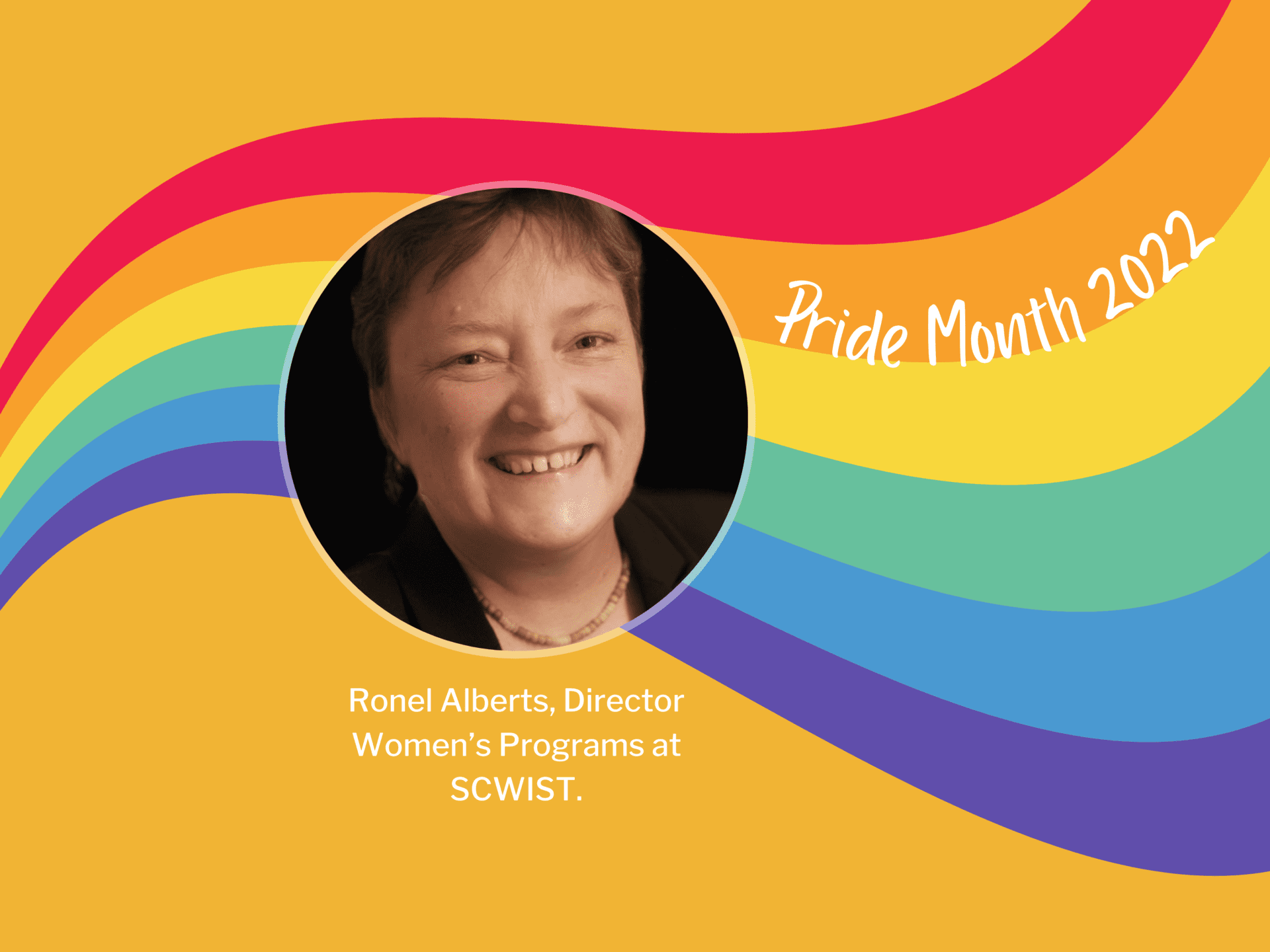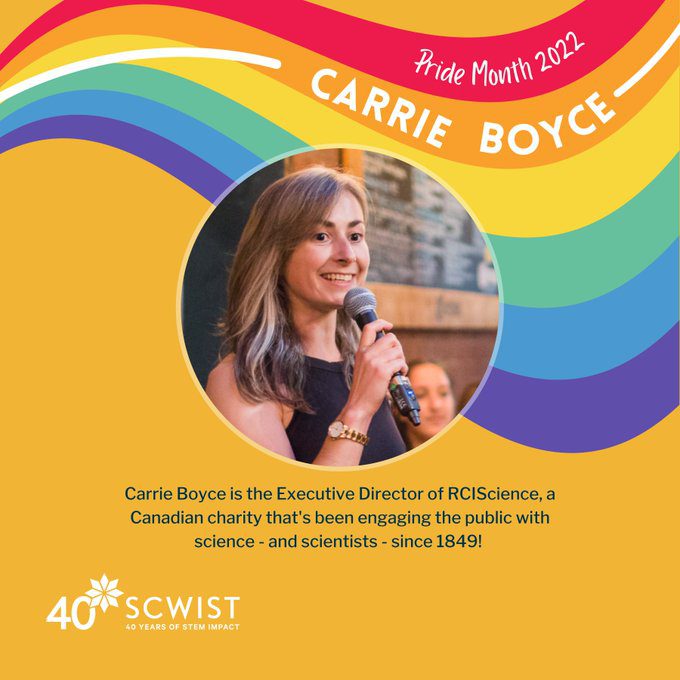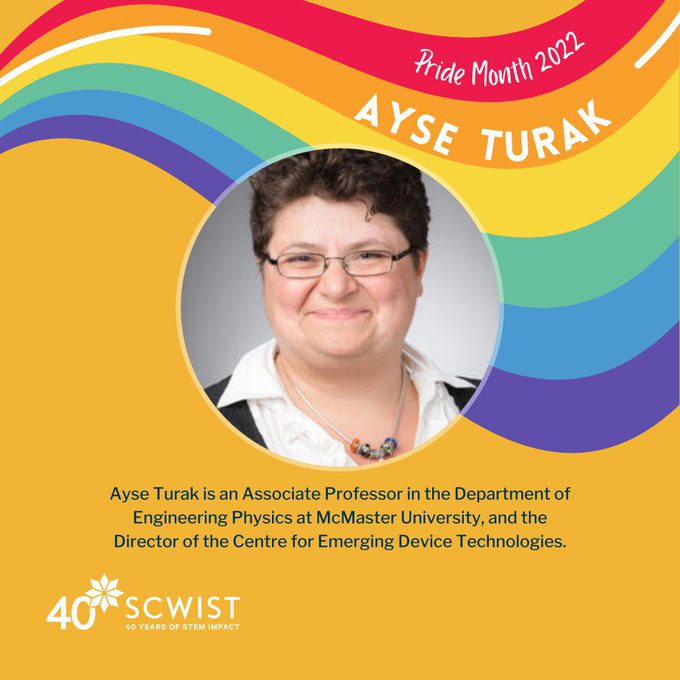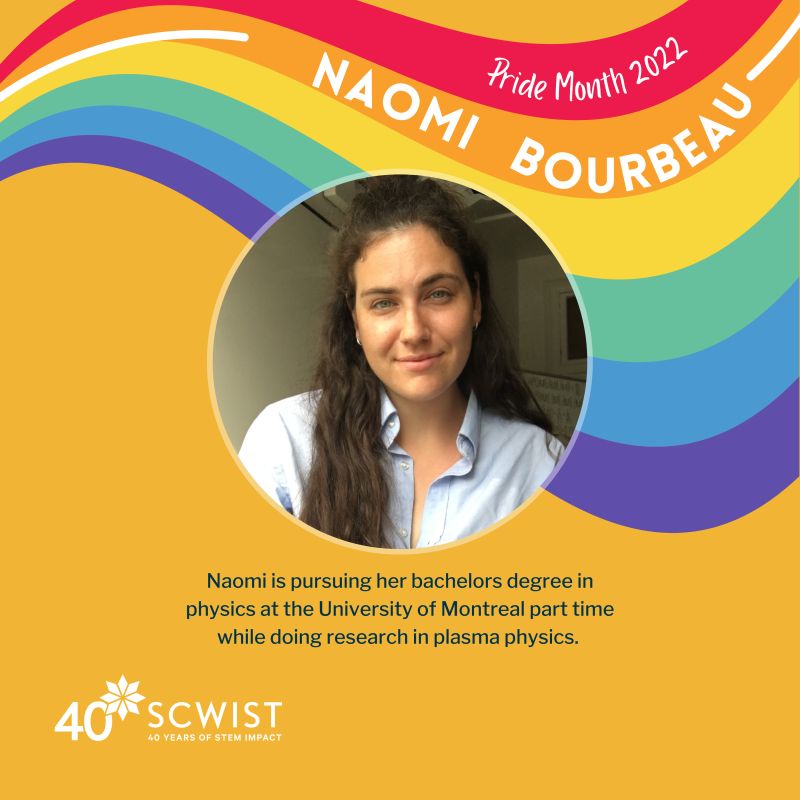Pride Month 2022: Here’s to More Pride in Science!
Back to Posts
We recently sat down with Ronel Alberts, SCWIST’s former Director of Women’s Programs, for a chat about queer representation, women in STEM and how small actions can have a big impact. This interview has been edited for brevity and clarity.
After graduating from the University of Cape Town in South Africa with a BSc in Computer Science, Ronel quickly discovered she has a knack for synthesizing technology and business requirements. She spent twenty years working as a business analyst, holding numerous leadership positions throughout her career. For the past decade, she has been running her own consulting company and has had the privilege of working around the world on exciting and challenging projects.
Ronel knows that empowering girls and women, especially in STEM fields, will lead to a more viable and sustainable future.
In her spare time, Ronel and her wife can enjoy geocaching, motorcycling and hiking with their adorable dogs.

Why did you choose to join SCWIST?
The queer community is underrepresented in SCWIST and in STEM, and I’d like to be a part of changing that. There’s a lot of focus on other demographic groupings within Canada, but the queer community continues to be severely underserved. But I think SCWIST is the right organization to help deal with that.
I’ve always appreciated the open arms that everybody at SCWIST has extended to my wife and me. They have also always accepted the issues that are brought to the table, such as microaggressions that I’ve pointed out. And that takes a lot of sophistication. It shows a lot about an organization to be able to do that. I’ve always appreciated that about SCWIST. But there is still quite a bit more work to do.
How is it different for queer women to be in science? What barriers do they face that others may not notice?
It can be difficult to say my wife and me, or my partner and I. If there is an office function, it can be frightening to bring your female partner. You don’t know if someone is going to be homophobic or not, or how you’re going to be judged.
And it’s little things. For example, if my wife and I go out for dinner, they always bring us two cheques. They automatically assume that we’re not a couple. These little moments leave an impact.
As for being in STEM, which is a very male-dominated environment, there’s a huge ‘bro’ culture, especially in IT. As a gay woman, many of the men I’ve worked with tend to treat me like ‘one of the guys’. When there’s conflict, they talk to me very abruptly and unsubtly. They want to go for a beer and talk it out. But that is not something, as a gay woman, I am necessarily comfortable doing. So you can see how the very culture of STEM companies excludes women in general and makes it even more difficult for a gay woman to out herself and be comfortable talking about it openly.
What can people do to be allies?
There are a lot of people in SCWIST who are allies without even really realizing it. For example, if they introduce me to somebody, they say, “This is Ronel and her wife Elsjé.” Through their acceptance of our relationship, it’s normalizing it for the other person. Or when we have functions, people say, “I hope Elsjé is going to be coming with you.” There is a complete acceptance and realization that we’re a couple. I really appreciate the automatic acceptance that SCWIST has. It’s subtle but very powerful.
What is your vision for SCWIST in 40 years?
What I want for SCWIST as an organization and what I want for the world are pretty much the same. I want the organization to be part of changing the world. I want to continue to be a force within the government for changing policy. I want to overcome barriers and have it be a given that women and girls have equal opportunities in STEM.
Want to chat further? You can connect with Ronel via LinkedIn.
Meet our other Pride Month role models:


